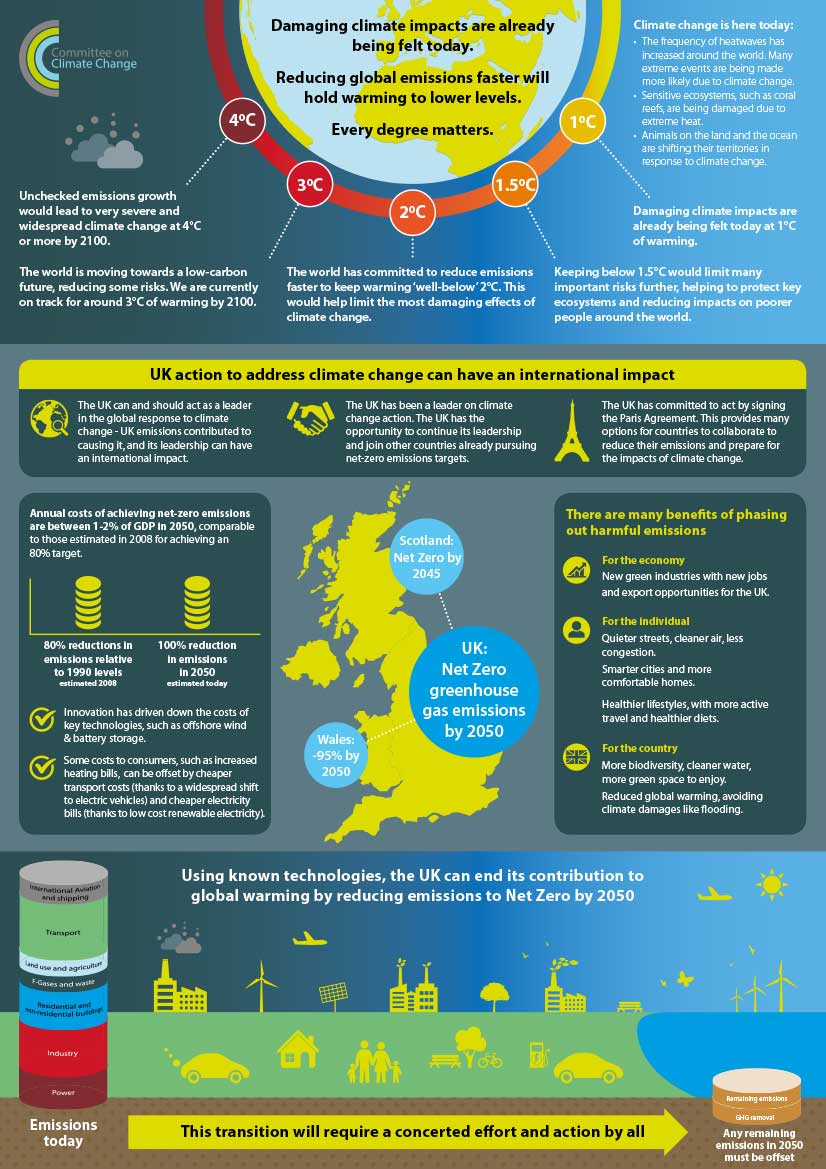Manufacturers welcomed aspects of the Committee on Climate Change call for the UK to eliminate greenhouse gas emissions to net zero by 2050 but warned that the proposal could jeopardise competitiveness and innovation if not handled carefully.
Greater UK ambition must be used to bring about further action from other countries too, said MakeUK.
Last week the CCC called for the UK to set an “ambitious new target” to reduce its greenhouse gas emissions to net zero by 2050, in line with UK commitments to the Paris Agreement on climate change. By doing so the UK “would lead the global effort” to reduce the rise in average global temperature to 1.5°C.

The committee said the targets, which cover all sectors of the UK economy, “are achievable with known technologies… and should be put into law as soon as possible”. Falls in cost of some of the key technologies mean that achieving net-zero is possible within the economic cost that Parliament originally accepted when it passed the Climate Change Act in 2008, it said.
It added that “the foundations are in place throughout the UK, and the policies required to deliver key pillars of a net-zero economy are already active or in development” but warned: “these policies must be urgently strengthened – current policy is not enough even for existing targets”.
Policies must cover a supply of low-carbon electricity (which will need to quadruple by 2050), efficient buildings and low-carbon heating throughout the UK’s building stock, electric vehicles, , stopping biodegradable waste going to landfill, phasing out potent fluorinated gases, increasing tree planting, and measures to reduce emissions on farms. Developing carbon capture and storage technology and low-carbon hydrogen were “a necessity, not an option”.
Achieving the net-zero target “is entirely contingent on the introduction without delay of clear, stable and well-designed policies across the emitting sectors of the economy. The Government must set the direction and provide the urgency,” the committee concluded, adding that “the costs of the transition to a net-zero economy are manageable but they must be fairly distributed”.
The UK could receive “an industrial boost as it leads the way in low-carbon products and services”.
Make UK head of climate & environment policy Roz Bulleid said the report “makes for a sobering read”. She added that if it followed the committee’s advice, “the Government must ensure greater UK ambition is used to leverage further action from other countries too” so that energy-intensive UK industries were not left paying much higher regulatory costs than overseas competitors. “To date, much of the sector has viewed climate change policy as something that adds costs, rather than delivering the first-mover advantage promised when the original 2050 target was agreed,” she said.
Dr Jenifer Baxter, Institution of Mechanical Engineers head of engineering, said achieving net zero emissions would require “every tool at our disposal”. Both the IMechE and MakeUK backed the committee’s view on carbon capture and storage.
CBI chief economist Rain Newton-Smith said the report marked “a new dawn for climate change action in the UK. Recent protests have shown the strength of public passion and sense of urgency that the UK should do all it can to mitigate the worst impacts of climate. What we need now is a supportive and timely response from the Government to enact this ambitious target.”
Environmental group Friends of the Earth, called a target date for net zero of 2045 “at the very latest” and said that “with determination and innovation, faster is possible”.
You can download the report at: https://www.theccc.org.uk/publication/net-zero-the-uks-contribution-to-stopping-global-warming/

